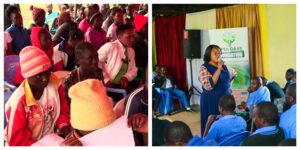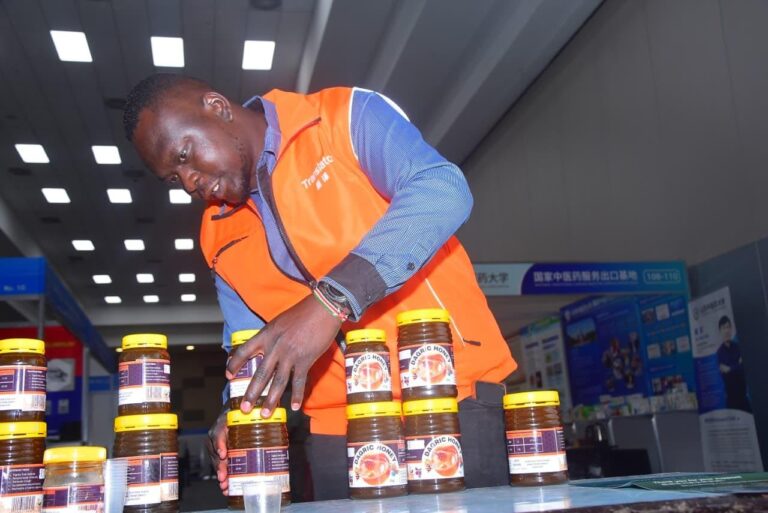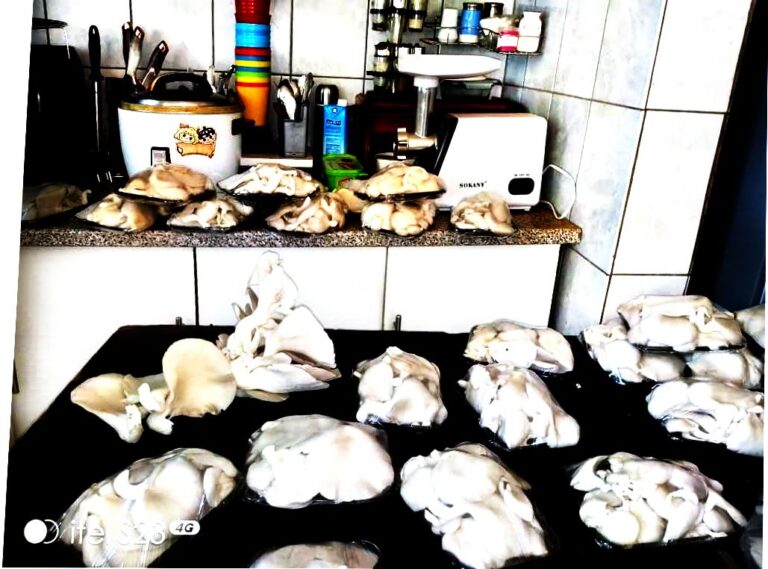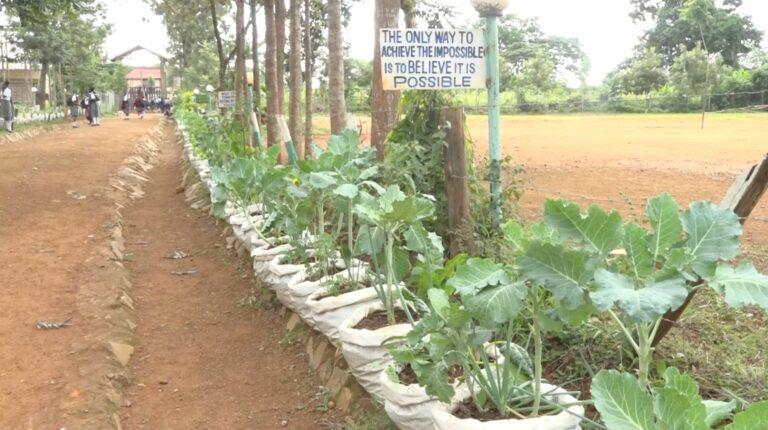According to the Kenya National Bureau of Statistics (KNBS), the county’s poverty level in 2022 was 39.8%. Additionally, the Kenya Institute of Public Policy Research and Analysis (KIPPRA) report of 2024 indicated a drop to 36.3%.
Youths in Khalwenge Village, almost at the border of Kenya and Uganda, are not only grappling with high poverty levels, but an influx of drugs from Uganda and mental challenges that arise from domestic violence, poverty, and a lack of home, which has led to an increase in the number of youths taking drugs in the area.
The porous border makes it easy for drugs to follow in the country, the delicate and vulnerable populace easily accessing the drugs for consumption, further dimming an already dark future threatened by high levels of poverty.
During his Jukwaa La Usalama (County functions aimed at boosting and strengthening security) in border counties, Kenya’s Ministry of Interior Cabinet Secretary Kipchumba Murkomen assured residents of the government’s commitment to enforce stringent measures to curb the flow of drugs and smuggling in Trans Nzoia, Bungoma, Garissa, Busia, Wajir, Mandera, and Marsabit.
Besides poverty, poor infrastructure further disadvantages the enclosed border village, making the roads impassable during rainy seasons.
With hopes of a better future, the shattering poverty level in the village is a key barrier that has left their community more than disadvantaged.
According to Dr. Calistus Wekesa, Director of Afya Care Foundation, which champions for mental health in the county, the area has been left behind in development, plunging youths into vices that lay a foundation to the shattering their future.
With information often considered ‘available to all, ’ he says the community is deprived of wellness information owing to the state of their roads.
“This is an area where people rarely come due to the impassibility of their roads. Infrastructure here is very poor; to ensure the community is included, we broke all odds and camped here to ensure that these children get information on how to go about the challenges engulfing the community,” he explained.
Prone to early teenage pregnancies and marriages, Florence Ngaira, Principal St. Barnabas Sabwani Girls High School in the village, lauded the timely community outreach, which had affected the intake of students, with early marriages used as a shield for overcoming poverty.
“We talked to the future generation about the effects of drugs, with more emphasis on early pregnancies, which has been my bigger challenge as a teacher, as many girls have dropped out of school and further building a generation of poor and unhealthy babies,” she said.
Ngaira explains to Africa Feature Network, the dire situation the community is faced with, which forced her to come up with a school feeding program to retain the girls in school and further cushion them against early marriages.
“Every December, I have made it a call to go round this village to collect food. Often in this season, families harvest maize, and the little they contribute has been able to sustain the girls in school, complementing the government’s support,” she noted.
Constantly witnessed during the natives’ circumcision ceremonies (Khuminya), popular among the Bukusu community, and Disco Matanga (Night vigils), Agnes Odina, Assistant Chief in Sabwani Sub-Location, added that it has been a major contributor to early marriages and teenage pregnancies.
Living in dilapidated conditions and striving to overcome their situations, Wekesa says that the young and the community are likely to develop a mental health struggle, emanating from their daily struggles.
“All these challenges increase the vulnerability of youth and society to mental health issues. Without proper mechanisms and efforts like this to help people manage daily challenges, society will be left with individuals unable to drive development,” he explained.
The living conditions of the residents, a clear indication of residents that Kenya is yet to achieve its desired goal under Sustainable Development Goal 1 of eradicating poverty, by ensuring access to basic services, social protection, economic resources, and building resilience to shocks and unprecedented disasters.
As they call for mental health education and awareness, Khalwenge village needs joint committed collaborative efforts from not only locals and government, but Non-Governmental Organisations (NGOS), to cushion and secure the lives of the vulnerable youths living in dire poverty.
Provision of empowerment programs, to secure mothers using their teenage girls for marriage in exchange for food, and sending their young children to work in the neighbouring government Agricultural Development Corporation (ADC) Farms to cater for their families.



